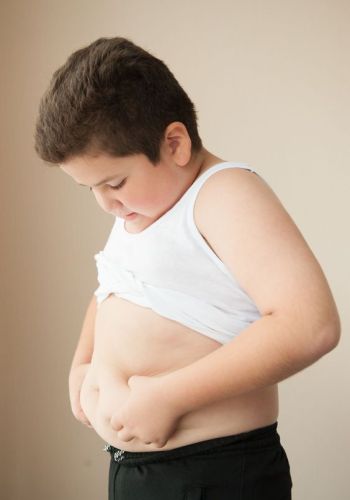
The increasing rate of childhood obesity has raised many concerns regarding the health of the affected children later in life. It places them at high risk of developing chronic diseases such as diabetes and heart disease, which can be life threatening if not addressed in time. Childhood obesity is a medical condition that can affect both children and adolescents. It can result in poor self-esteem, depression, and sadness because they feel different from their peers and other children who lead normal lives. The best way to reduce childhood obesity is to understand the causes and improve lifestyle habits that may accelerate their chances of becoming obese. This article looks at some of the main causes of childhood obesity.
- Genetics
Genetics is one of the major examined causes of childhood obesity. Children can inherit genes from their parents that make them gain weight easily. It may also be associated with rare genetic conditions such as the Prader Willi syndrome that is present from birth. However, genetic susceptibility needs to be combined with behavioral and environmental factors to facilitate excessive weight gain in children and adolescents. This means that children must eat more than enough calories necessary for growth and energy.
- Behavioral Factors
Some behaviors that can influence excess weight gain in children include eating high-calorie foods and beverages with low nutritional content, lack of enough physical activity, and living a sedentary lifestyle. Sedentary activities that can promote childhood obesity include watching television screens, spending more time on electronic devices, sleep routines, and medication use. Children can maintain a healthy weight through their childhood by being physically active and consuming a healthy diet. Balancing the level of calories burned through physical activity and calories consumed from food and beverages plays a significant role in preventing excess weight in children.
- Community Environment
It can be difficult for both children and their parents to make healthy food choices when they are exposed to environments that promote unhealthy eating habits. For example, schools, childcare centers, and neighborhoods can affect the diet of a child through the type of foods and beverages they offer. A child cannot lose weight if the type of physical activities offered does not provide enough balance between the calories burned and the calories consumed from food. Communities that lack enough playgrounds, offer few opportunities for physical activity and provide children with easy access to high-calorie foods make it difficult for both children and parents to maintain a healthy lifestyle.
- Medical Conditions
Children with hormonal conditions such as hypothyroidism are likely to become obese. Hypothyroidism is caused by the low production of thyroid hormone, which runs the body’s metabolism. People with such conditions are likely to suffer from a slow metabolism, which results in weight gain and increased difficulty in losing weight. The symptoms of each patient may vary depending on the severity of thyroid hormone deficiency and the duration in which your body has not received a proper amount of thyroid hormone.
- Family Influence
Several studies have shown that overweight parents may be less concerned about the weight of their children compared to parents who have healthy body weight. It is quite difficult for a parent to prevent his or her children from eating junk foods if that is what they also eat regularly. Since such parents live sedentary lifestyles, their children may spend a lot of time on sedentary pursuits such as watching television and playing electronic games. All these factors replace active pastimes such as playing in the field or other physical activities that help shed off excess weight.
How to Prevent Childhood Obesity
If your child is overweight, it is important to show them that you will be supportive through their weight loss journey. As a parent or guardian, you need to talk to your child about their weight and allow them to share their concerns. However, it is not necessary to put your child into a restrictive diet, as they may not get enough nutrients and energy required for normal growth and development. The best strategies to prevent childhood obesity are through reduced sedentary activity, regular physical activity and promoting healthy eating behaviors.
Children who lead a sedentary lifestyle and eat unhealthy foods are more likely to gain weight during their childhood years. There is no simple solution for obesity in young people, as it requires the combined efforts of the child, parents, and the community in general. It is not recommended for parents to set their children apart because of their excess weight. However, they should provide enough care and counseling to their children about the importance of healthy eating habits and regular physical activity.

